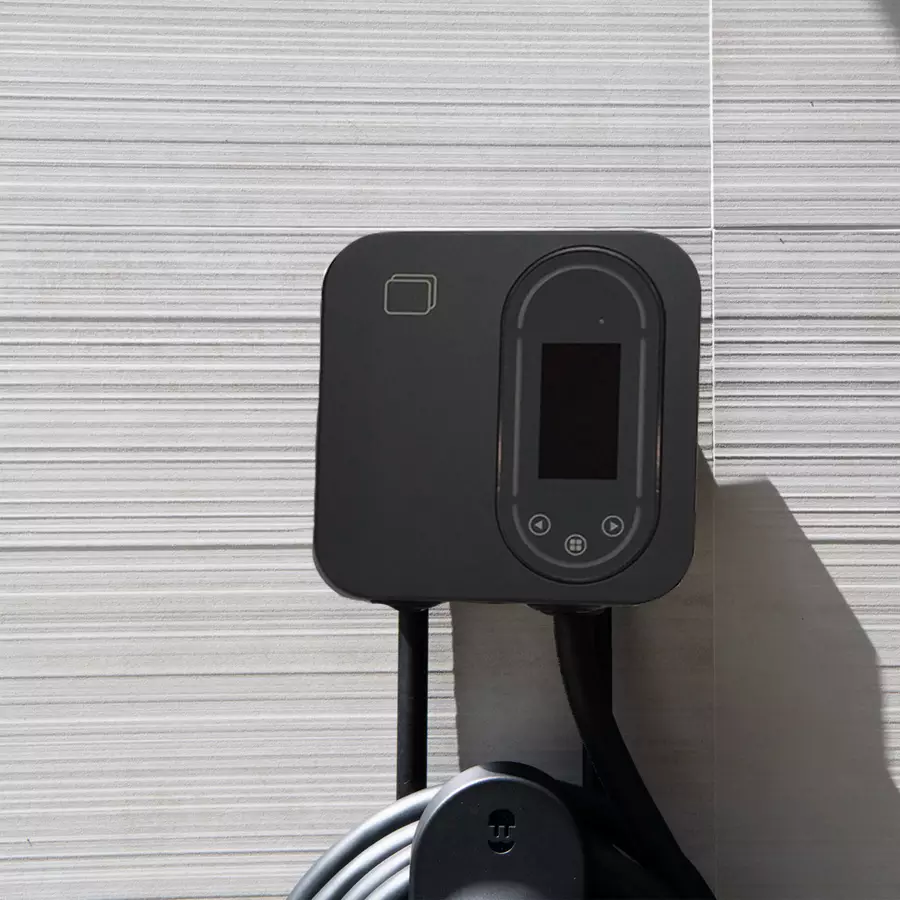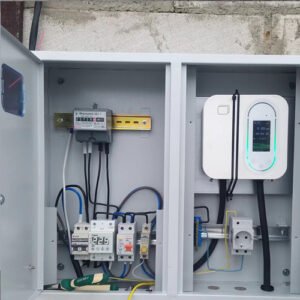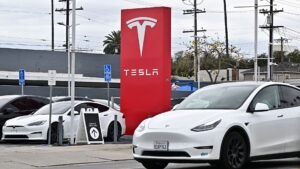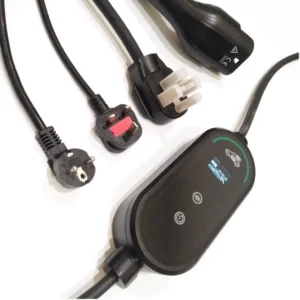What is an EV home charger?
We first need to understand what a home electric vehicle charger is. In fact, an EV home charger is specifically designed to meet the needs of home electric vehicle charging.
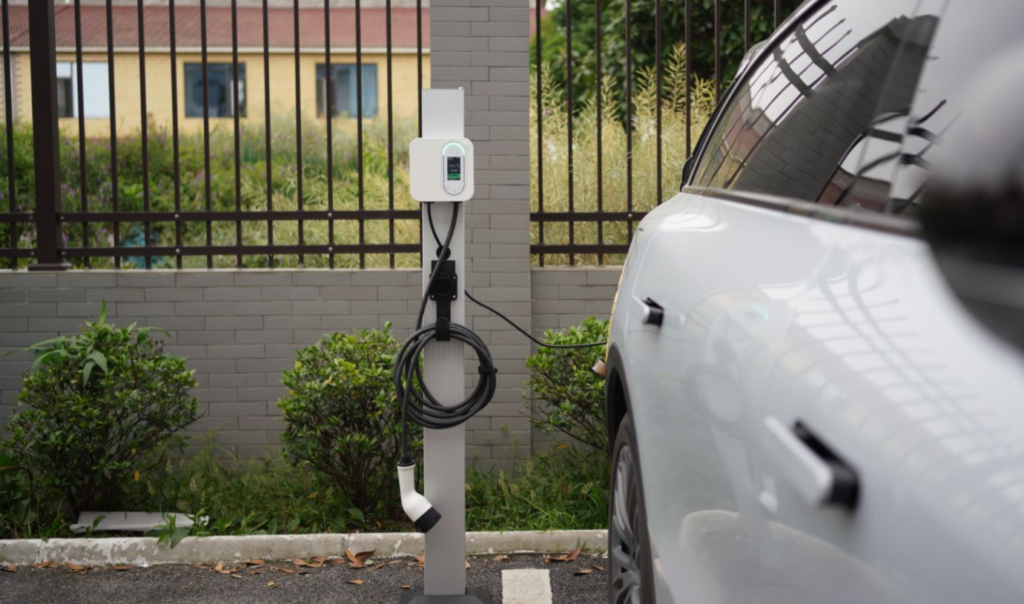
Do you need a EV home charger?
When we consider installing a ev charger for our car at home, there are a few questions that need to be investigated first.
First, installing a EV home charger has certain requirements for the installation environment, such as no fixed parking space, such as aging community power facilities, and cannot carry high-power charging operations, etc.
Second, home chargers have different designs and functions as our needs change, and their sizes and dimensions vary, but they all require professional installation by professional power engineers and join the home power grid. Some also need to install a load balancing control box to make the home power more harmonious.
Third, even if you have a perfect installation location for a home charger, there is still a question of whether need to install a home charger. With the development of the charging network, more and more options can be used to charge electric vehicles, you may consider the cost compare with public stations. But ev home chargers still have the advantages of being more efficient and more convenient.
If you do not meet the above conditions, don’t be discouraged, because public charging piles are becoming more and more popular now, and you can choose to charge your car at any public charging pile nearby.
If you meet the conditions, then let’s continue to learn about other contents of home charging stations.
How to charge an electric car at home?
To charge your car at home, we should install a home charger where your car is parked, or use a home power socket as a temporary backup charging power source.
What are the benefits of using a home charger?
A home ev charger is a small, easy installed device that is usually well waterproofed to IP65 and can be used outdoors, mounted on the wall, or stored at home at any time.
People generally choose a dedicated home charger to charge their car because it is safer, faster and more efficient.
Why is using an EV home charger faster?

Normally ev home charger is connected to the home power supply through a dedicated cable, it can provide a larger charging power, such as 7kW, 11kW, and 22kW, while the power of a standard home socket is usually 2kW to 3kW.
The ev charger power choose depends on the usage requirements, the battery capacity of the car, the maximum load capacity of the home electrical system, etc., but it is at least 2-3 times faster than an ordinary home socket. Using a higher-power home ev charger, the charging efficiency can even be as high as 10 times, such as 22kW.
Even the smallest 3kW home ev charger can charge most pure electric or hybrid vehicles overnight, and faster chargers can certainly shorten the charging time. The specific charging time depends on the battery capacity and charging power of the vehicle. EV home chargers can meet the charging needs of most electric vehicles.
Below we list some charging cases to understand the relationship between charging power and charging speed. For example, a BYD hybrid car has a battery capacity of 17kwh. When charging on an home socket in the countryside, the power is only 1.6kW and takes 12 hours to charge. When charging on a 7kw home ev charger, it only takes 2.5 hours to charge.
| Car Model | Battery Capability | 3kW charger | 7kW home charger | 11kW home charger |
| Tesla Model Y | 68Kwh | 22h | 9.7h | 6.2h |
| Volkswagen ID 4 | 77Kwh | 26h | 11h | 7h |
| MG Motor 4 | 51kWh | 18h | 7.3h | 4.6h |
| BMW i4 eDrive35 | 67Kwh | 22.3h | 9.6h | 6.1h |
| Audi Q4 e-tron45 Quattro | 77kwh | 26h | 11h | 7h |
Why is using an EV home charger safer?
The factors that determine a home charger are not just charging speed, but the core factor is the safety of home EV charging. Since it is an energy-intensive activity for the home grid, it is likely to put a lot of stress on the home grid and may cause tripping, short circuits, etc.
Home EV chargers minimize accidents by directly connecting to the home grid, allowing EV charging and home electricity to coexist harmoniously. Of course, load balancing equipment can greatly adjust the balance between home electricity and EV charging.
In addition, ev home chargers are well waterproof, windproof, and sunproof, and can be used safely outdoors. Home chargers generally have various built-in protection settings, such as over-temperature protection, over-voltage protection, over-current protection, etc., which effectively ensure the safety of electric vehicle charging.
Why does using an EV home charger flexibility?
In addition to the safety and efficiency of EV charging, home EV charging is also more convenient, the most important of which is its connectivity and visibility, and many home chargers are equipped with connectivity control features.
When the mobile phone is connected to the home charger, it can be remotely managed and controlled by phone, and the real-time charging status, charging mileage, and charging cost can be viewed in real time. By controlling to choose to start charging when electricity is cheapest, a lot of charging costs will be saved. Of course, the home ev charger connection can also receive software updates, troubleshooting, etc.

There are many smart functions connected to the home charger, such as viewing the automatic distribution of power for load balancing, viewing the connected solar energy and solar energy storage consumption or household power consumption, which will save the most power.
How much does it cost to install a dedicated home charger?
Installation costs vary from region to region, depending on local electrician charges, installation difficulty, installation material costs, etc.
In China, installing a 7kW home ev charger will cost around $200-$500, not including the purchase cost of the charger.
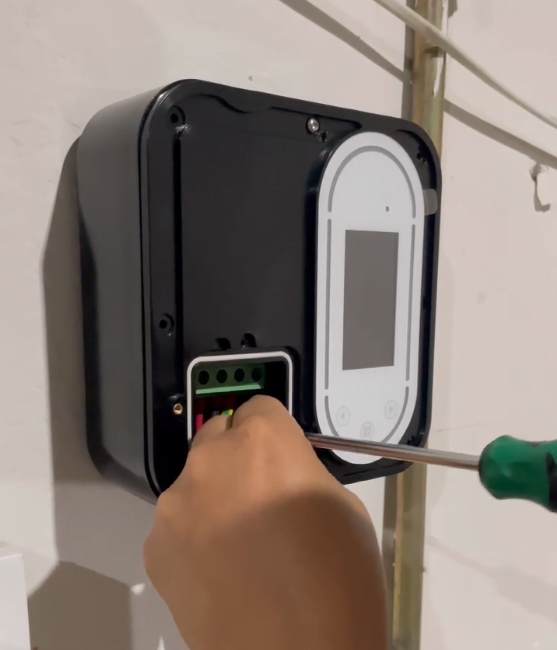
What is the best EV home charger?
There are many factors to consider when choosing an ev home charger for your car. also many home chargers on the market, ranging from design, power to features, and price.
The best home ev charger depends on the car battery capacity, how often you use the car, the budget for installation, the installation conditions, and your personal preference for appearance. The installation conditions need to be surveyed by a professional electrician. Generally speaking, the higher the power and smarter the home charger, the more expensive it will cost to install.
Many chargers are becoming more and more functional and intelligent. You can choose the most suitable charger according to your needs. For example, if need your charger not to affect the electricity supply at home, you need a charger that can be configured with load balancing.
If you have solar panels at home to store electricity, you need the charger to be able to connect to solar energy and use solar energy to the maximum extent to reduce the use of household electricity. For example, if you want to check your charger remotely, you need the charger to have an APP remote control, etc.
In summary, using an EV home charger can help us reduce the trouble of finding charging piles, and considering its low cost, it is very suitable for use in families where conditions permit. If you have any questions, please contact us to discuss more details.

